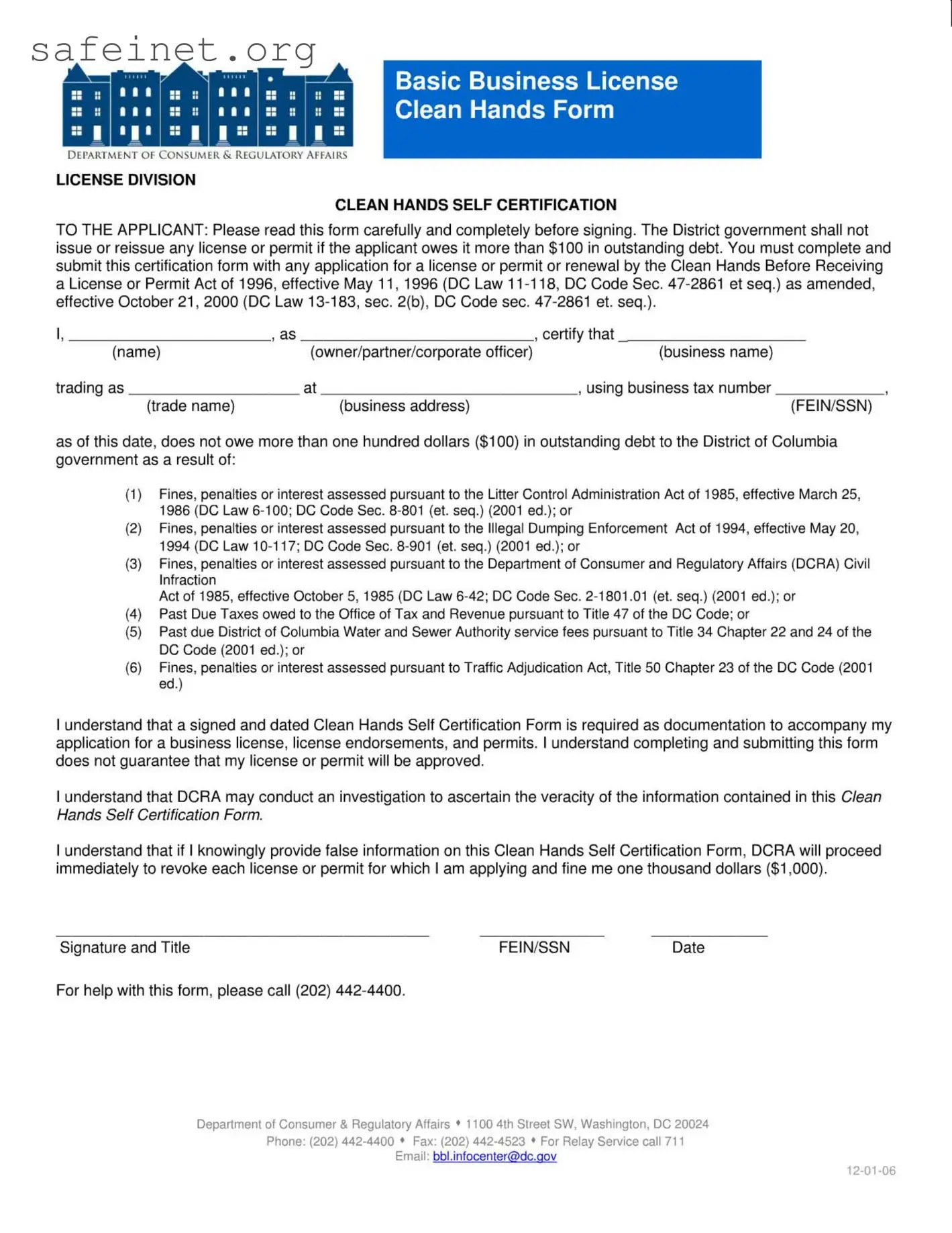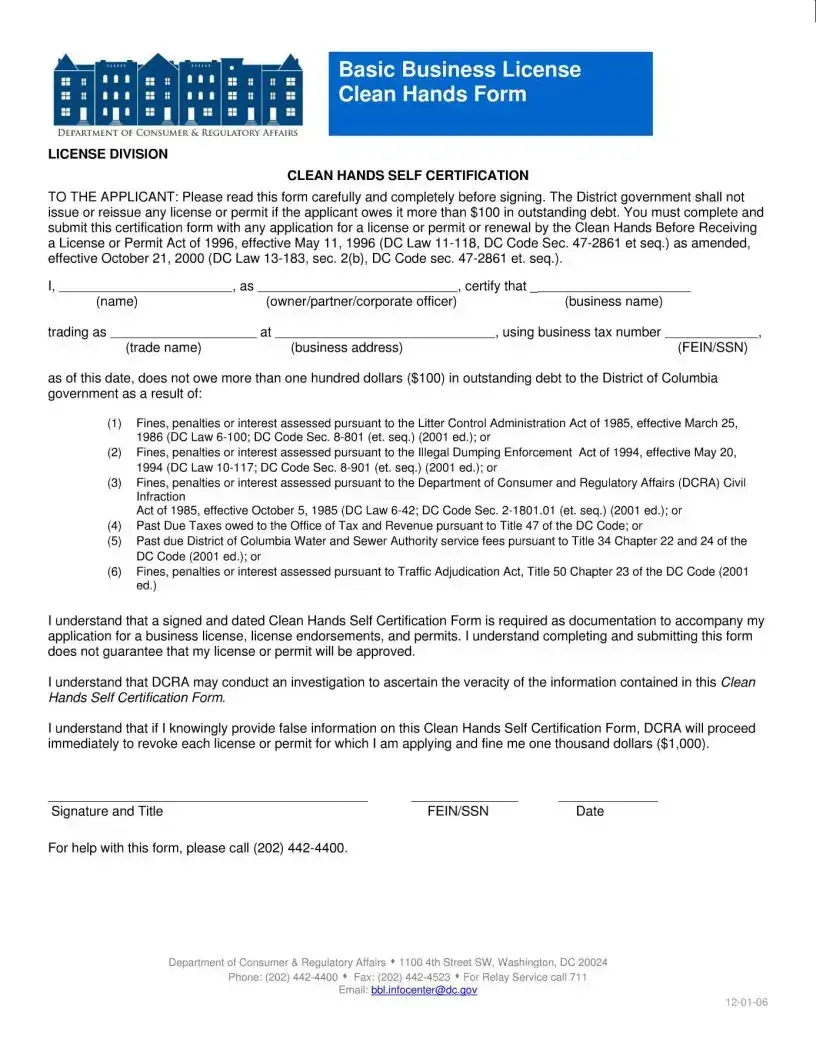What is the Clean Hands Certification form?
The Clean Hands Certification form is a requirement for individuals and businesses applying for a license, permit, or a renewal of either in the District of Columbia. It confirms that the applicant does not owe more than $100 in outstanding debt to the District government. This form ensures compliance with the Clean Hands Before Receiving a License or Permit Act of 1996.
Who needs to complete the Clean Hands Certification form?
Any person or business entity applying for a new business license, renewing an existing license, or seeking permits in the District of Columbia must complete the Clean Hands Certification form. This requirement applies to all applicants regardless of business size or type.
What types of debts are considered when completing this form?
The debts that are taken into account include fines, penalties, interest, past due taxes, and service fees owed to various District agencies. Specifically, debts related to the Litter Control Administration Act, the Illegal Dumping Enforcement Act, the DCRA Civil Infraction Act, and past due taxes or service fees to the Office of Tax and Revenue or the District of Columbia Water and Sewer Authority should be noted.
What happens if I owe more than $100 in outstanding debt?
If an applicant owes more than $100, the District government will not issue or renew the requested license or permit. Therefore, it is crucial to resolve any outstanding debts before submitting the Clean Hands Certification form.
Does submitting the Clean Hands Certification form guarantee my license or permit will be approved?
No, submitting the form does not guarantee approval. The Department of Consumer and Regulatory Affairs (DCRA) may conduct further investigations to verify the information provided on the form. Approval depends on various factors, including compliance with all regulatory standards.
What are the consequences of providing false information on this form?
If false information is provided knowingly, the DCRA has the authority to immediately revoke any licenses or permits associated with that application. Additionally, a fine of $1,000 may be imposed. It is important to provide accurate and truthful information when completing the form.

